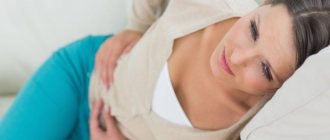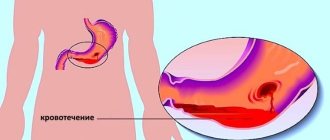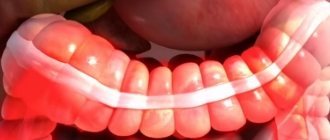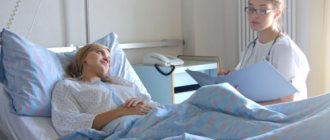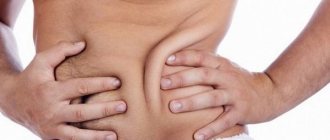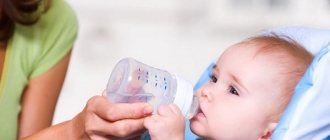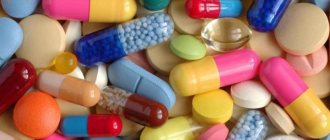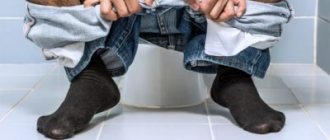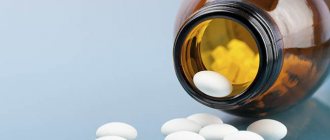It is probably impossible to find a person in the world for whom intestinal discomfort has never disrupted the usual rhythm of life. Everyone has had diarrhea, constipation, intestinal colic or bloating at least once in their life. But not everyone knows that the cause of such misunderstandings may not be intestinal infections or organic diseases of the gastrointestinal tract.
In approximately 30% of cases, functional disorders that relate to disorders of the motor function of the small or large intestine are responsible for such symptoms. In this case, we are talking about irritable bowel syndrome (IBS). What is it, how to recognize and treat this disease?
What is irritable bowel?
When there is no infectious (bacterial, viral, fungal) or immune inflammation in the intestinal wall, when it is not affected by protozoa or colonized by helminths, free from tumors and anatomical abnormalities, but a person is periodically bothered by stool disorders and pain - this is irritable bowel syndrome . Symptoms of irritable bowel syndrome are also not accompanied by any changes in blood or stool tests.
Most often this pathology affects people after 20 years of age, 40% of patients are aged 35-50 years. The prevalence of the syndrome is 15–25% of women and 5–18% of men. Moreover, 60% of patients do not seek medical help, 12% go to therapists, 28% go to gastroenterologists.
IBS with constipation and flatulence: what is the cause?
The pathological condition is more often caused by a psychosocial disorder. Under stress, the human body produces endogenous substances that disrupt intestinal sensitivity and motility. Irritable bowel syndrome with a predominance of difficult bowel movements may result from the influence of additional factors, including:
- inappropriate nutrition (abuse of fatty, fried foods, alcohol, caffeine, fiber deficiency, etc.);
- acute intestinal infection;
- giardiasis;
- dysbacteriosis;
- stomach ulcer;
- malignant neoplasms;
- pancreatitis;
- genetic factor and a number of others.
Attention! Most often, the development of the disease is caused by a person being under constant stress with an unbalanced diet.
Why does IBS occur?
There is no one universal reason why irritable bowel syndrome develops.
- Stress
It has been noted that pathology occurs with increased excitability of the nervous system against the background of chronic stress (therefore, young people and women are more likely to get sick). In this case, a vicious circle arises when an unfavorable emotional background causes intestinal irritation, and the disease itself drives the patient into depression, against the background of which other organs and systems begin to suffer. In some patients with IBS, when examined by a neuropsychiatrist, psychopathy and neuroses are revealed.
Doctors jokingly call IBS “irritable head syndrome,” because in addition to the main symptoms, there are often signs of a disorder in the autonomic and central nervous systems.
- Intestinal motility disorder
Also among the causes of the development of the syndrome, intestinal motility disorders and shifts in the transmission of nerve impulses to the intestinal muscles, which cause the intestines to contract, have been identified. In this case, there are no disturbances in the intestinal wall or in the nervous apparatus of the intestine, but there is a periodic deregulation of contractions and relaxations.
- Patients also have increased sensitivity to bowel overflow and distension. Pain sensitivity also increases.
- There is also some relationship with hormonal levels. Thus, in women, the last day of the cycle and the first days of menstruation can be combined with diarrhea and intestinal pain against the background of a temporary increase in prostaglandin E in the blood.
- Unusual, excessively fatty or high-calorie foods can also cause symptoms of intestinal distress. Among the drinks, alcohol, coffee, tea and sweet sodas have provoking properties.
- Hereditary predisposition is also not discounted: the syndrome is more often observed in people whose parents suffered from a similar disorder.
- Intestinal infections are a trigger for IBS in 30% of patients
- Dysbacteriosis and lack of ballast substances in the diet also lead to the development of irritable bowel syndrome.
What causes IBS in children
The causes of IBS are not entirely understood. Researchers believe that a combination of physical and mental problems may lead to the development of irritable bowel syndrome. Possible causes of IBS in children may include:
- Problems with the brain-gut connection . Signals between the brain and the nerves of the small and large intestines control bowel function. Problems with the signals sent from the brain to the gut and back can cause IBS symptoms, such as changes in bowel habits, pain or discomfort.
- Problems with gastrointestinal motility . Normal motility or peristalsis may be absent in the colon of a child with IBS. Slow motility can lead to constipation, and fast motility can lead to diarrhea. Cramps, or sudden strong muscle contractions that come and go, can cause abdominal pain. Some children with IBS also experience hyperreactivity, which is an excessive increase in bowel contractions in response to stress or food.
- Hypersensitivity . Children with irritable bowel syndrome are more sensitive to abdominal pain than children without IBS. Children with irritable bowel syndrome have been found to have rectal tone and rectal motility after eating.
- Mental health problems . IBS has been linked to mental health, or psychological problems, such as anxiety and depression in children.
- Bacterial gastroenteritis . Some children with bacterial gastroenteritis (infection or irritation of the stomach and intestines caused by bacteria) develop irritable bowel syndrome. Studies have shown an association between gastroenteritis and IBS in adults, but not in children. But researchers believe that post-infectious IBS does occur in children. Researchers don't know why gastroenteritis causes this condition in some people but not in others.
- Small intestinal bacterial overgrowth syndrome (SIBO) . Typically, the small intestine contains only a small number of bacteria. SIBO is an increase in the number of bacteria or a change in the type of bacteria in the small intestine. These bacteria can produce excess gas and can also cause diarrhea and weight loss. Some researchers believe that SIBO can lead to IBS, and some studies have shown that antibiotics are effective in treating irritable bowel syndrome. However, the research has been small and more research needs to be done to show the link between SIBO and IBS.
- Genetics . It is unclear whether irritable bowel syndrome has a genetic cause. Studies have shown that IBS is more common in people whose family members suffer from gastrointestinal problems. However, the cause may be an environmental situation or the result of increased awareness of GI symptoms.
Symptoms and signs of IBS
In its manifestations and symptoms, irritable bowel syndrome is not much different from typical intestinal disorders. Today there are several variants of it.
Option in which the first symptom is diarrhea (diarrhea)
- In this case, there is a pronounced urge to defecate immediately after or even during meals, and this pattern is repeated several times a day. Morning hours and the first half of the day are more typical for this.
- Sometimes loose stools occur with strong emotional arousal or anxiety or fear. This condition is popularly known as “bear disease,” because it is the brown inhabitants of the forest who react to fear or danger by involuntary defecation.
- Also, with this variant of IBS, there is bloating and pain in the lateral parts of the abdomen below the navel, which precede a sudden urge and decrease after relief.
Option with predominance of constipation
All the same bloating and pain along the colon, but accompanied by stool retention for more than 3 days. The pain may occur in the form of intestinal colic or have a prolonged aching character, somewhat subsiding after bowel movement. The stool often changes shape, becomes more dense in the form of “sheep feces” and has an admixture of clear or white mucus.
Against the background of stool retention, digestive disorders may also appear in the form of appetite disturbances, nausea, heartburn, and an unpleasant taste in the mouth.
The third option is alternating diarrhea and constipation
A variant of IBS, in which the leading symptoms are abdominal pain and alternating constipation or diarrhea, is the third type of the syndrome.
Thus, the following symptoms are characteristic of irritable bowel syndrome.
- Stitching, aching or cramping abdominal pain, discomfort that decreases or disappears after bowel movement
- Stool disorders (diarrhea, constipation or alternation of both)
- Feeling unable to control the urge to defecate
- Feeling of incomplete bowel movement
- Bloating, flatulence (causes)
- Release of mucus during bowel movements
Symptoms
Along the way, two forms of pathology are distinguished:
- Acute intestinal inflammation. It begins suddenly and is always accompanied by vivid clinical symptoms. Intestinal manifestations come to the fore.
- Chronic intestinal inflammation. Symptoms increase gradually. Intestinal manifestations are moderate, and extraintestinal symptoms are noted. Characterized by alternating periods of exacerbation and remission. During remission, all symptoms subside, and the patient feels almost healthy.
Intestinal manifestations
- Abdominal pain. Unpleasant sensations are usually localized around the navel, less often reaching the iliac regions. There may be widespread pain throughout the abdomen. Discomfort often occurs in the afternoon. Intensifies after eating, before defecation, and during physical activity. When the small intestine is affected, the pain is dull and moderately severe. Inflammation of the colon is accompanied by severe pain.
- Abnormal stool. Constipation or diarrhea occurs. Alternation of symptoms is possible.
- Dyspeptic phenomena. When the intestines become inflamed, food digestion is disrupted. There is heaviness in the abdomen, bloating, and flatulence.
Extraintestinal manifestations
- Fever. Increased body temperature and chills are observed in acute enterocolitis. Accompanied by muscle pain, headache and general weakness.
- Astheno-vegetative syndrome. With a long course of the disease, metabolism is disrupted. Lethargy, fatigue, general weakness, and loss of strength develop.
- Weight loss. It is observed when the small intestine is damaged as a result of insufficient absorption of food. With inflammation of the colon, weight loss is associated with fasting. The patient refuses to eat, fearing the appearance of unpleasant sensations before defecation.
Weight loss and astheno-vegetative symptoms are distinctive signs of chronic intestinal inflammation.
Symptoms for various localizations of pathology
The clinical picture of the disease varies depending on the location of the lesion. Signs of pathology are presented in the table.
| Localization of the inflammatory process | Symptoms |
| Enteritis (damage to the small intestine) |
|
| Colitis (colon damage) |
|
With the development of enterocolitis, a combination of these symptoms is observed.
The symptoms of the disease also depend on its cause. Characteristics of various forms of pathology are presented in the table.
| Nature of intestinal inflammation | Cause | Symptoms |
| Infectious enterocolitis | Bacterial, viral, fungal infection | High body temperature, nausea, vomiting, diarrhea, flatulence, bloating, pain around the navel |
| Parasitic enterocolitis | Helminths, protozoan microorganisms | Moderate and severe abdominal pain, dyspepsia, weight loss |
| Toxic enterocolitis | Chemical poisoning | Nausea, vomiting, abdominal pain, bowel dysfunction and other specific symptoms of poisoning with certain substances |
| Allergic enterocolitis | Food allergens | Mild abdominal pain, bloating, diarrhea, or constipation. Possible extraintestinal manifestations of allergies (skin rash, itching) |
| Alimentary enterocolitis | Power supply errors | Bloating, mild to moderate pain, flatulence, nausea, vomiting, diarrhea or constipation |
| Mechanical enterocolitis | Tumors, diverticula and other obstructions | Constipation, abdominal pain at the site of obstruction |
Be sure to read: Stomach and duodenal ulcers: signs and treatment methods
How is IBS diagnosed?
Since with this pathology no significant changes can be found either in tests, or in x-rays or biopsies, the doctors at a conference in Rome agreed that:
Signs of irritable bowel syndrome will be considered: pain or discomfort in the intestines, if they annoy the patient at least 3 days a month over the past 6 months and are combined with improvement after bowel movements, began simultaneously with a change in the frequency or shape and appearance of stool.
Auxiliary signs are:
- deviations in stool frequency - bowel movements less than 3 times a week (constipation) or more than 3 times a day (diarrhea)
- changes in stool shape: rough, hard or foamy, watery
- abnormal bowel movements: straining or urgency to go to the toilet
Due to the fact that the main symptoms of irritable bowel syndrome are not specific, it is very important to exclude other, more serious diseases and intestinal lesions before making a diagnosis of IBS. Therefore, patients with complaints of stool instability, pain and bloating in the abdomen are prescribed:
- general and biochemical blood tests
- coprogram
- if necessary, sigmoidoscopy and irrigoscopy are performed
- According to indications, a biopsy of the intestinal wall is performed
Almost 90% of patients, after seeing a doctor and examination, adapt to their condition, cope with symptoms independently and consider themselves healthy people. But 10% get stuck, considering themselves hopelessly ill, turn to all specialists, insist on numerous studies and treatment measures that do not bring them relief, which further convinces them of a serious pathology and this condition of patients often leads to their social isolation.
Diagnosis of IBS
Making a diagnosis of “irritable bowel syndrome” presents a certain difficulty for doctors, since a person’s blood and stool tests, X-ray examinations and biopsies remain within normal limits. Therefore, a conference was held in Rome at which the criteria for diagnosing irritable bowel syndrome were clearly outlined.
The signs of this pathology are considered to be: pain and discomfort in the intestines for 3 days a month. The duration of such pain is six months or more. After defecation, a person should experience relief. The change in the appearance of the stool and its shape should have occurred at the moment when the patient first noticed painful sensations.
Additional criteria that help clarify the diagnosis are:
- Acts of defecation are more frequent and occur more than 3 times in 24 hours, or are reduced and occur less than 3 times in 7 days. That is, a person suffers from constipation or diarrhea.
- The stool changes shape: it becomes liquid with foam or hard and rough.
- Defecation is either difficult or the urge cannot be controlled.
At the same time, differential diagnosis is important, making it possible to distinguish irritable bowel syndrome from other, more serious pathologies of the organ. That is why a patient with characteristic complaints should be sent for the following tests:
- General blood analysis;
- Blood chemistry;
- Coprogram;
- If indicated, undergo irrigoscopy or sigmoidoscopy;
- If necessary, a biopsy of the intestinal wall is performed.
It has been established that the majority of patients, namely 90% of people, after seeing a doctor and making a diagnosis of IBS, independently cope with the symptoms of the pathology and do not consider themselves sick. However, the remaining 10% of people recognize themselves as hopeless patients. They strive to undergo more and more examinations, which do not reveal a more or less serious disease in them. However, people become even more convinced that they have an extremely severe pathology and often become socially isolated for this reason.
Differential diagnosis
Symptoms that should be alarming because they are not characteristic of irritable bowel syndrome:
- if the disease began in old age
- if symptoms progress
- if acute symptoms appear, IBS is not acute, it is a chronic disease
- symptoms appear at night
- weight loss, loss of appetite
- bleeding from the anus
- diarrhea with pain
- steatorrhea (fat in stool)
- high body temperature
- fructose and lactose intolerance (see lactase deficiency), gluten intolerance (see symptoms of celiac disease).
- presence of inflammatory diseases or bowel cancer in relatives
The following conditions and diseases are necessarily included in the differential diagnostic search, since they have some common symptoms:
The simplest reasons | Physiological conditions of women |
Exposure to drugs and food irritants:
Fear, anxiety, prolonged intellectual overstrain, but after rest and stress relief, the symptoms disappear. |
|
Gynecological diseases | |
Give a typical clinical picture of IBS | |
Organic bowel diseases | Neuroendocrine tumors of the gastrointestinal tract |
|
Usually occurs under the guise of a painful or diarrheal form of IBS |
Endocrine pathologies | |
Some symptoms are similar to diarrheal IBS |
Treatment of irritable bowel syndrome
Since the manifestations of irritable bowel syndrome are quite varied, but there are no painful changes in the intestine itself, then treatment for the most part will be reduced to suppressing the prevailing symptoms of the pathology.
But, before taking medications, it is worth remembering the teachings of Academician Pavlov and his theory that an unhealthy central nervous system is to blame for all ailments. If the popularity of this theory has faded today, it is not in the case of IBS. Here, the scientific research of the academician is fully confirmed by practical medicine, which has proven the beneficial effect on the course of IBS of various measures that normalize the psycho-emotional state of patients.
Therefore, if a person suffering from irritable bowel syndrome is unable to cope with chronic stress, troubles at work or in the family on his own, then he should seek qualified psychological help. If the matter has already gone far, and there is a phobic disorder caused by fear of pain, involuntary defecation, or somatized depression, then you will have to fight this first by turning to psychiatrists and neurologists.
In milder cases, before starting drug treatment, it is recommended:
- reconsider your lifestyle
- adjust diet
- give up alcohol and tobacco
- walk more and do feasible physical work
This set of simple measures helps to balance the nervous system and relieves the intestines from the unnecessary influence of an overly “wound” head.
If symptoms of IBS with predominant constipation occur in a child
According to statistics, about 14% of preschoolers suffer from irritable bowel syndrome with constipation. Diagnosing pathology in a small child is not easy. Among the “alarm bells” for parents are:
- frequent whims, crying of the child;
- the baby sits on the potty for a long time, pushing hard;
- The child has unstable bowel movements.
If clinical symptoms are confirmed, the patient is prescribed a series of tests (urine, blood, stool culture, coprogram). If signs of another illness are noticed, the patient is sent to the hospital for further examination.
Treatment of pathology in children is based on the same principles as therapy in adults: the child is prescribed a diet for IBS with constipation and taking medications.
Attention! For patients under 12 months of age who are bottle-fed, it is necessary to select a balanced mixture containing prebiotic and probiotic components.
Diet
Nutritional therapy for IBS is not required, or rather, it is inappropriate to focus on preparing any special dishes and counting calories and nutritional value of what you eat. It is more important to establish regular meals in moderate portions in a calm environment. It also makes sense to limit foods that provoke:
- diarrhea - foods that enhance motility during diarrhea - apples, plums, fiber, beets
- gas formation - baked goods, legumes, cabbage, grapes, nuts
- constipation - fatty and fried foods for constipation
In case of intolerance to milk sugar, milk is replaced with kefir, fermented baked milk and yogurt; in case of celiac disease, products with gluten are excluded (see list of gluten-containing products). Reduce consumption of sugary sodas and chewing gum. It is recommended to take prophylactic courses of drugs that normalize the intestinal flora (Linex, bifidumbacterin, see the full list of probiotics, Linex analogues), since dysbiosis in the intestine can increase the manifestations of IBS.
Treatment of IBS with diarrhea
If the stool cannot be regulated, and pain and intestinal discomfort are accompanied by frequent bowel movements, the urge to which can occur anywhere and anytime, it’s time to start serious treatment. But, it is worth remembering that many intestinal infections are hidden under the mask of diarrhea (see symptoms of food poisoning), therefore it is better to entrust the diagnosis of irritable bowel syndrome, selecting treatment and medications to a competent gastroenterologist. This will save you from unnecessary problems and extra cash costs.
Constantly taking medications for IBS is impossible and dangerous. Medicines are prescribed only for periods of exacerbation, when the patient’s condition suffers:
- Before meals, it is possible to prescribe Diphenoxylate, Loperamide (Imodium 180-250 rubles, Diara 100 rubles, Lopedium 30 rubles, Loperamide 20 rubles) up to 2-3 times a day. These drugs significantly slow down intestinal motility (see medications for diarrhea).
- Smecta gives a good effect (instructions)
- From herbal remedies - pomegranate peel, cherry, bird cherry fruits, alder - in the form of decoctions
- And also sorbents - Polysorb, Polyphepan, Filtrum STI, Enterosgel.
- Even with this variant of IBS, the serotonin receptor modulator Alosetron is used.
Antidiarrheal drugs
The action of these drugs is aimed at slowing down the passage of food and suppressing the production of gastric juices. The most commonly prescribed medications are:
- Lomotil. A drug that helps reduce the frequency of bowel movements during diarrhea and slow down the contractions of the walls of the irritable intestine. The composition contains a substance that is similar in action to narcotic drugs to reduce pain, but it affects the irritable intestines to a greater extent. It also contains atropine, which reduces peristalsis and secretion of gastric juices. Adults first drink a couple of tablets four times a day, and then the amount is gradually reduced according to an individual scheme. Children under 13 years of age are prescribed syrup. Relief is usually observed within the first two days. Treatment with Lomotil sometimes causes side effects identical to those described above. Contraindications include allergies, obstructive jaundice, intestinal obstruction, diarrhea, and muscle weakness.
- Loperamide. This medicine, which slows down the contraction of the organ walls, makes the stool harder and relieves diarrhea, is most often prescribed for irritable bowel syndrome. Adults are usually prescribed a couple of tablets, and then the dosage is reduced by half. They drink them after every trip to the toilet. You should not drink more than 8 pcs per day. side effects are the same, but contraindications include allergies, bloody diarrhea, fever, infectious diarrhea and constipation.
If you have constipation
- Preferred drugs for IBS that increase the volume of intestinal contents: based on flea plantain (Naturolax, Mucofalk 350 rubles, Solgar Psyllium 1200 rubles, Metamucil, Fiberlex 150 rubles, Ispagol 250 rubles), agar, kelp and synthetic cellulose (Citrucel, Polycarbophil, Fiberal, Fibercon) act within 10 hours of administration.
- Lactulose - in the case of stool retention, the gold standard indicated for patients of any age remains the polyhydric alcohol lactulose (Duphalac, Normaze, Romphalac, Portolac, Goodluck). Without being absorbed in the intestine and without irritating its mucous membrane, the drug solves problems with stool.
- Polyethylene glycol - other drugs from the group of osmotic laxatives have a similar effect and begin to work after 3-6 hours (Macrogol, Forlax 200 rubles, Fortrans 500 rubles, Lavacol 200 rubles, Transileg, Osmogol, Relaxan) and lactiol (Exportal).
- Emollient laxatives - vegetable and vaseline oils, Norgalax, sodium picosulfate (Guttasil, Laxigal 350 rubles, Guttalax drops 300 rubles, Regulax Picosulfate 150 rubles. Slabicap, Slabilen drops 100 rubles).
- The serotonin modulators Tegaserod and Prucaloprid are also effective.
- Mineral waters with magnesium ions relax - Essentuki No. 17, etc.
For more information about all medications for constipation, read the article Laxatives for constipation.
Antidepressants for IBS
It has long been known that bowel disorders and repeated episodes of abdominal pain in IBS are often the result of deeply hidden psychological problems. In turn, irritable bowel syndrome itself can drive even a completely balanced person into a depressed state. Therefore, tricyclic antidepressants are increasingly used to treat this disease.
The mechanism of action of these drugs in this case comes down to suppressing the excessive influence of the cortex on the perception of pain, as well as normalizing the supply of nerve impulses from the brain and spinal cord to the intestines, which reduces its uneven contractions, leading to pain and stool disorders.
- Traditionally, the prescription of amitriptyline, doxepin, nortriptyline, imipramine, trimipramine.
- Today, preference is given to monoamine oxidase inhibitors: Befol, Pyrazidol, Phenelzine, Moclobemide, which have a milder effect on psychosomatic disorders.
Serotonin receptor antagonists
If irritable bowel syndrome is detected, then specialists from this group often recommend Alosetron. It is prescribed to women with IBS, which is accompanied by severe diarrhea. First, 0.5 mg is prescribed every 12 hours. The duration of treatment is 4 weeks, and then, if there are no side effects, the amount is increased to 1 mg.
Treatment with Alosetron is contraindicated in case of individual intolerance, bleeding, constipation, ischemic colitis and severe liver failure. When taking pills, you may experience constipation, abdominal pain, nausea, hemorrhoids, etc. A complete list is provided along with instructions.
IBS and dysbiosis
The course of irritable bowel syndrome can be aggravated by concomitant gastrointestinal dysbiosis. At the same time, excessive growth of pathogenic microorganisms and a lack of lacto- and bifidumbacteria contribute to worsening pain, bloating and stool disorders. Therefore, it makes sense to focus on the treatment of intestinal dysbiosis.
First you need to suppress harmful bacteria:
- For this purpose, nitrofuran derivatives are traditionally used: Furazolidone, Enterofuril, Stop-diar. The course lasts from 5 to 7 days.
- For mild forms, probiotics with antibacterial action Enterol, Bactisuptil, and bacteriophages are used.
- According to indications, it is possible to use fluoroquinolones (Ciprofloxacin, Cefloxacin), Metronidazole (Trichopol), the intestinal antiseptic Intetrix, the intestinal antimicrobial drug Rifaximin (Alfa-normix).
Enterosorbents are used in complex therapy: Laktofiltrum, Filtrum, Enterosgel.
Next comes the turn of eubiotics (preparations containing various combinations of lacto, bifidobacteria, enterococci and E. coli) and prebiotics, which create conditions for the nutrition of beneficial microbes.
- In the first group, Linex, Premadophilus, Bifidumbacterin, Normoflorin, Bificol are the most effective (see all probiotics, list). The course of eubiotics should be at least 4 weeks.
- Of the second group, the most commonly used prebiotics are Lactulose and Hilak-Forte.
How to treat flatulence in adults?
Treatment of flatulence is determined depending on the cause of this symptom.
If increased gas formation is the body’s response to foods, then it is important to reconsider your diet and diet.
One of the most important stages in the treatment of flatulence is diet6. In order to eliminate excess gas formation, it is worth thinking about useful habits:
- for some time, remove legumes, sweet and flour products, carbonated drinks, raw vegetables and fruits from the diet;
- give preference to fermented milk products, crumbly porridges, boiled meat, wholemeal bread;
- adhere to fractional meals (eating in small portions every 2-3 hours);
- maintain a drinking regime (drink at least 1.5 liters of clean water per day);
- don't overeat at night3.
If the appearance of bloating (flatulence) is associated with Irritable Bowel Syndrome, then treatment of gas formation requires an integrated approach. Just following a diet to normalize work will not be enough, since the problem has been developing for a long time. Quickly accustoming yourself to a new diet is not easy. A remedy for restoring intestinal function will be a good helper.
Antifoaming drugs, which are usually used to treat flatulence, may also not be enough. Such drugs help relieve the symptom here and now, but they will not be able to restore functional impairment. In order for the problem of flatulence to be resolved naturally, time and a suitable drug are needed to train the intestines to work correctly4.
Traditional treatment for irritable bowel syndrome
In folk medicine, the treatment of intestinal disorders occupies a significant place. Previously, they tried to get rid of any intestinal discomfort in this way, without understanding what was its real cause. Since IBS is based on transient functional disorders, it is quite possible to treat it using traditional methods. The main thing is to know when to stop.
Medicinal plants
- The most effective methods are aromatherapy using peppermint oil, which soothes the intestines and relieves a person from spasms.
- It is customary to take infusions and decoctions of chamomile and oak bark internally. Fennel seeds, dill water, mint, chamomile, caraway seeds and anise drops, and valerian root help relieve spastic pain.
- For constipation, use buckthorn bark, licorice root, and yarrow (see how to get rid of constipation at home).
- Loose stools include the roots of cinquefoil, serpentine and burnet, plantain, blueberries, sage and walnut leaves.
Physiotherapy
Another interesting way to normalize intestinal function is special therapeutic exercises that force the intestines to work in the correct mode. It is important that there is a sufficient flow of fresh air during exercise. This calms the central nervous system and reduces its effect on internal organs. Various stretches for the spine (yoga, Pilates), walking at an average pace and cycling are effective. Swedish scientists from the University of Göttenberg, through experimental observations of volunteers, have proven that more than half of patients with IBS can significantly reduce the symptoms of the disease by devoting moderate physical activity from half an hour to 60 minutes a day for 3-5 days a week.
Meditative practices
This is a great way to calm the nervous system and intestines without antidepressants. It is important that when practicing, the patient has a positive attitude towards achieving results. Moreover, group exercises have a greater therapeutic effect than individual attempts.
Thus, when treating irritable bowel syndrome, a set of medications that relieve the leading symptoms is not as important as a measured rhythm of life, a philosophical attitude towards everyday storms and a positive attitude towards recovery, which is not only desirable, but also possible.
Author:
Postnova Maria Borisovna general practitioner
Treatment
Intestinal inflammation is treated conservatively. The operation is indicated only in the presence of mechanical obstacles - tumors, diverticula, etc. After surgery, intestinal function is restored and inflammation goes away.
First aid for acute intestinal damage
If symptoms of acute enterocolitis develop, you must:
- provide the patient with physical rest;
- start rehydration therapy with saline solutions;
- follow a water-tea diet. You should not eat until the symptoms subside. You can drink plain water, weak sweet tea;
- for severe abdominal pain, antispasmodics are indicated;
- If you suspect an infectious nature of the disease, you can start taking adsorbents.
Be sure to read:
Rectum: sections, structure, functions and diagnosis of the organ
The main danger of acute enterocolitis is dehydration. To prevent fluid loss during diarrhea, glucose-saline solutions are used. You can purchase the drug at a pharmacy. The finished powder must be diluted strictly according to the instructions. Take in small portions until the symptoms of the disease subside.
You can prepare a rehydration solution yourself:
- 18 g sugar;
- 3 g table salt;
- 1 liter of water.
Further tactics are determined by the doctor.
Before visiting a doctor, you should not take antibiotics, strong painkillers or other medications (except antispasmodics) - this changes the symptoms of the disease and makes it difficult to make a correct diagnosis.
Diet
In case of acute inflammation of the intestines, you should not eat on the first day. You are allowed to drink water, tea and rehydration solutions. It is forbidden to drink milk, coffee, strong tea, alcohol, fruit, vegetable and berry juices. These drinks increase urine excretion and overload the digestive tract, which leads to a deterioration in the patient's condition.
After acute symptoms subside, the diet expands:
- weak meat and fish broths;
- rice water;
- porridge with water;
- minced meat.
For 2-4 weeks, it is recommended to adhere to a diet designed for the chronic form of the pathology.
| Authorized Products | Prohibited Products |
|
|
General principles of nutrition:
- 5-6 meals per day are recommended. Portions should be small. Small meals relieve the digestive tract and speed up recovery.
- The last meal should be at least 2 hours before bedtime.
- Food needs to be steamed and boiled. You can bake it, but don’t get carried away with baking. Fried foods are not recommended.
- If there is no pathology of the kidneys or heart, you should drink at least 1.5 liters of fluid per day.
Drug therapy
In the treatment of acute and chronic enterocolitis, the following drugs are used:
- Antibacterial and antifungal drugs. Prescribed for infectious nature of the disease. The choice of a specific agent, its dosage and duration of treatment will depend on the identified causative agent of the disease.
- Antiparasitic drugs. Prescribed only if intestinal parasites are identified after a complete examination.
- Adsorbents. Remove toxins and metabolic products from the body. Prescribed for infectious, toxic and allergic enterocolitis.
- Probiotics. Restores the microbial landscape of the intestines. Indicated for any form of pathology.
- Enzymes. Regulate intestinal function, restore motility, improve digestion. Recommended for any form of disease.
- Antispasmodics. Relaxes the intestinal walls, eliminates pain.
- Defoamers. If inflammation is associated with excessive formation of gases in the intestines, medications are prescribed to eliminate bloating and flatulence.
- Vitamins. Prescribed for weight loss and obvious malabsorption of food. Recommended for damage to the small intestine.
Be sure to read:
Diseases of the duodenum: symptoms, diagnosis and treatment
Non-drug therapy
In addition to the main therapy, the following are prescribed:
- Physiotherapy. The condition improves after magnetic therapy and amplipulse therapy.
- Reflexology. Influence on reflexogenic points is practiced to improve the patient's condition.
- Spa treatment. Prolongs the period of remission and reduces the frequency of exacerbations.
- Physiotherapy. Regular exercise improves intestinal motility, facilitates the digestion of food and prolongs remission.
- Consultation with a psychotherapist. Some intestinal diseases are psychosomatic in nature.
All proposed methods are allowed only after acute symptoms have subsided.
Folk remedies
Traditional medicine methods are used only in combination with drug therapy and not to the detriment of the doctor’s main prescriptions. They relieve symptoms, but do not affect the cause of the disease. The following herbal remedies are recommended:
- potato and cabbage juice;
- a mixture of aloe and honey;
- sage;
- yarrow;
- Oak bark;
- St. John's wort.

